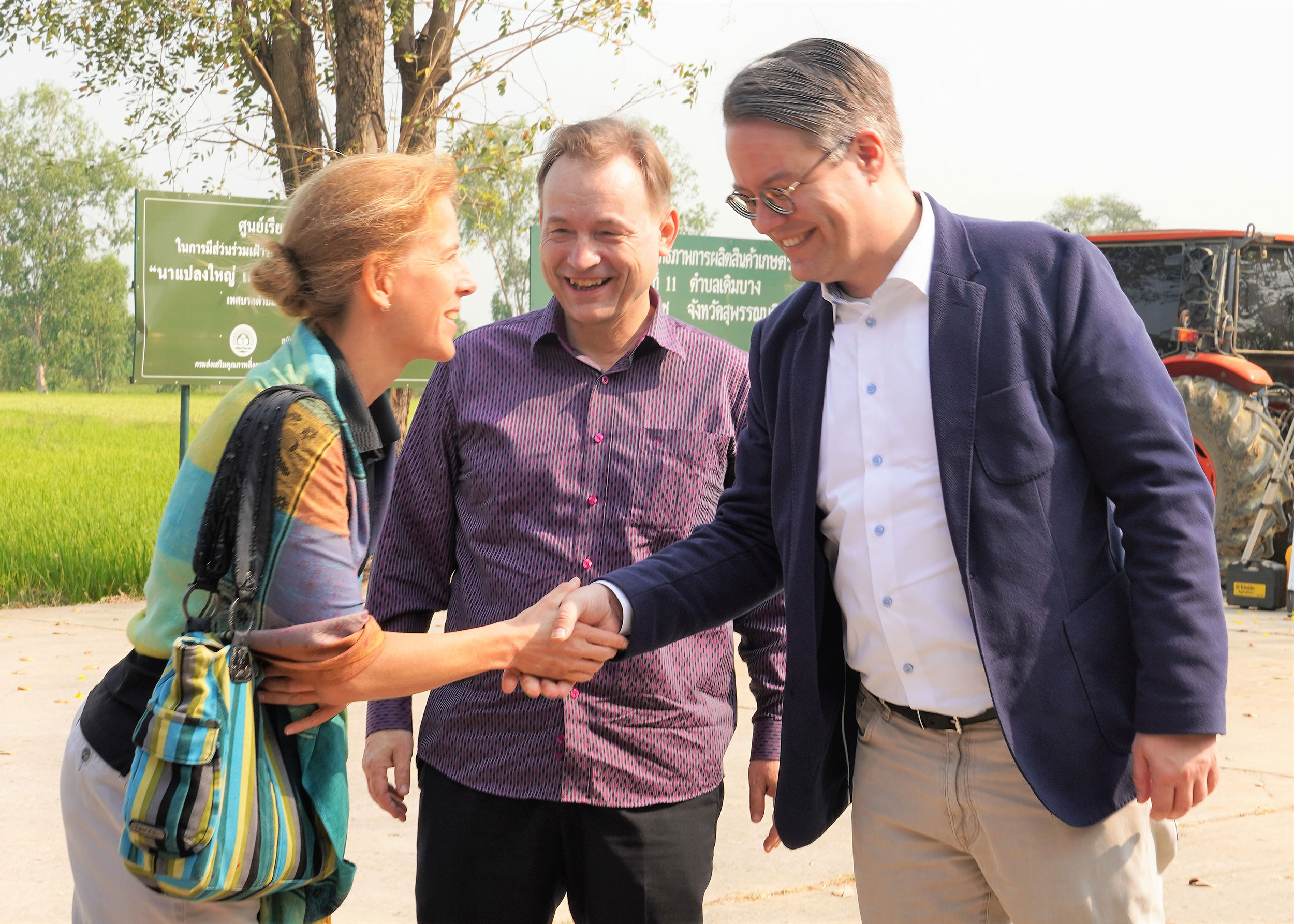Thai Rice NAMA Open House

Policymakers and government executives from Germany and Thailand recently visited the Thai Rice NAMA project site in Suphanburi province.
Dr Tobias Lindner, Minister of State at the Federal Foreign Office, was greeted by German Ambassador Georg Schmidt, Deputy Provincial Governor Teerayut Chanditthawong, GIZ Thailand executives and government officials in the province during his informal visit to the “Farmers Care Earth” demonstration plot.
Ureerat Charoentoh, Director–General of the Thailand International Cooperation Agency also led a team of executives comprising Arunee Hiam, Deputy Director–General and Lieutenant Sorawud Preededilok, Minister attached to the Thailand International Cooperation Agency, to visit the site.
A group of Thai Rice Nama farmer members led by Sawanee Phorang and Lampa Khampaeng shared their experiences and the challenges they faced in transforming their traditional rice farming method to one that reduces greenhouse gas emissions.
Sawanee, Lampa and many other female farmers in the community have been adopting the innovative farming methods of Laser Land Levelling (LLL) technology, Alternate Wetting and Drying (AWD), Site Specific Nutrient Management, and Straw and Stubble Management. These four technologies help make rice cultivation sustainable, increase rice yields, and save water while reducing greenhouse gas emissions.
At present, their “Love the Earth” rice paddies in Doem Bang Nang Buat District are regarded as the key Thai Rice NAMA demonstration plots. The community has become a learning centre for farmers nationwide to visit and learn how to improve climate resilience and livelihoods.
The farmers’ group recently signed a memorandum of cooperation with Oam Suk Social Enterprise Company Limited. This cooperation aims to promote carbon credits from agriculture by purchasing 40 tonnes of rice produced under the Thai Rice NAMA for distribution during the upcoming Earth Day.
Since 2018, Thai Rice NAMA has been working with Thai agricultural authorities at the national and provincial levels to support hundreds of smallholder farmers to apply low greenhouse gas emission methods. Farmers, regardless of gender, can now grow rice more sustainably with the use of laser land levelling and alternate wetting and drying. Water and fertilisers are used more efficiently and with great care.
GALLERY
Related project news


















